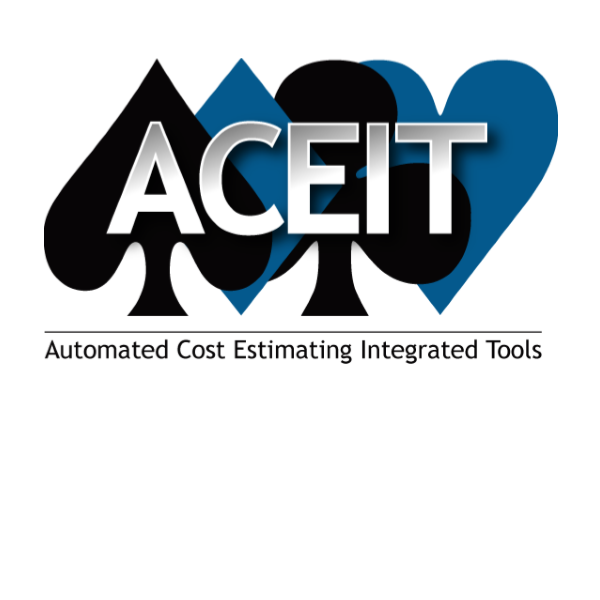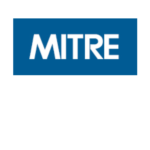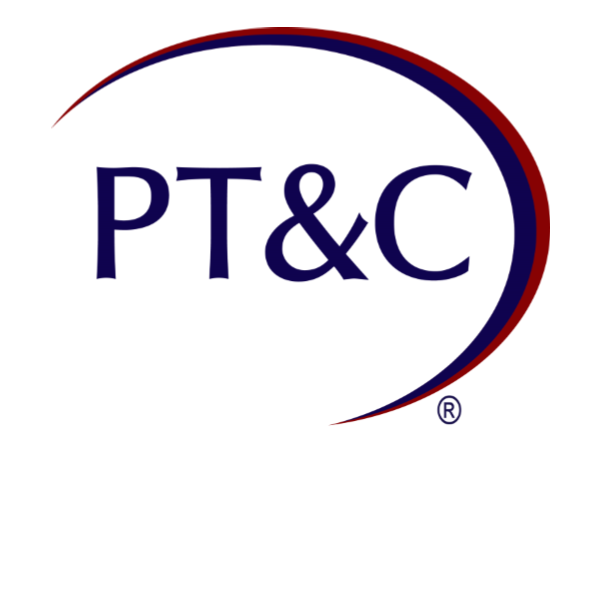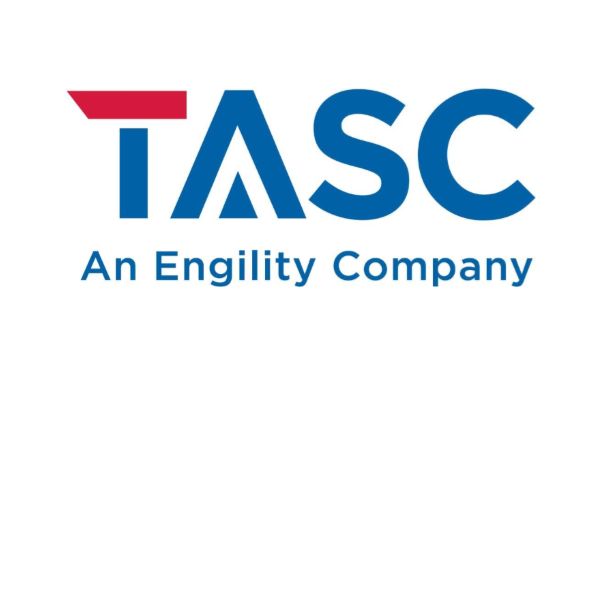ICEAA’s annual Professional Development & Training Workshop brings together professionals from government, industry and academic cost communities for an intensive 3 1/2-day program dedicated to developing the understanding and appreciation of using data-driven estimating and analysis techniques.
The ICEAA Professional Development & Training Workshop meets all requirements for sponsored training activity attendance as outlined in the USGPO Code of Federal Regulations.
2016 Best Papers
Acquisition & Business Case Analysis Category
3D Printing in the DoD; Employing a Business Case Analysis
Nicole Santos, Richard Shea, Robert Appleton
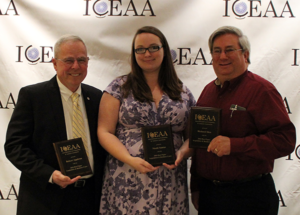 3D Printing is the family of technologies that enables users to produce items on demand from CAD files or 3D scanning. The potential benefits to military logistics include cost savings, weight reduction, and responsiveness to the warfighters’ needs. To demonstrate and measure the benefits in the Department of Defense (DoD), a rigorous Business Case Analysis (BCA) will identify benefits and challenges to implementation including evaluating its costs, risks, and benefits.
3D Printing is the family of technologies that enables users to produce items on demand from CAD files or 3D scanning. The potential benefits to military logistics include cost savings, weight reduction, and responsiveness to the warfighters’ needs. To demonstrate and measure the benefits in the Department of Defense (DoD), a rigorous Business Case Analysis (BCA) will identify benefits and challenges to implementation including evaluating its costs, risks, and benefits.
BC05 Paper
BC05 Presentation
 Methods & Models Category
Methods & Models Category
Beyond Anderlohr: An Alternate Approach To Estimating Production Breaks
Brent Johnstone
Estimating the cost impacts of production breaks has long been problematic. Use of the Anderlohr method is widely accepted, but requires a significant degree of estimating judgment and can produce substantially different answers based on the individual user’s assumptions. This paper suggests an alternate empirical methodology based on recent research on organizational learning and forgetting.
MM05 Paper
MM05 Presentation
 Management, EVM & Schedeuling Category
Management, EVM & Schedeuling Category
Putting Schedule Quality Checks to the Test
Eric M. Lofgren
Analysts often use the 14-Point Assessment for Schedule Quality as a benchmark for determining the overall reliability of a schedule. But how much of the variation in schedule error can be explained by the results of the 14-Point check? This paper will use actual defense contract data to find the correlates of schedule reliability, measured using both the accuracy and the timeliness with which the schedule slip is predicted.
MS06 Paper
MS06 Presentation
 Parametrics Category -and- Best Paper Overall
Parametrics Category -and- Best Paper Overall
The Dangers of Parametrics
Andy Prince
What if our models are not solving our estimating problems, but instead are the source of our problems? The purpose of this paper is to address this question. We will look at what a cost model is, and what it isn’t. We will examine how cost models appeal to our need for certainty and helps us create a good story for our cost estimate. We will take a look at a simple cost model to see what can go wrong when we trust the model over trusting the data. Finally, we will identify specific actions.
PA08 Paper
PA08 Presentation
 Risk & Uncertainty Category
Risk & Uncertainty Category
Introducing RIFT to Protect Your Uncertain Schedule
Nicholas DeTore, Peter Frederic
There are industry-accepted methods for allocating cost risk and uncertainty analysis results to detailed WBS elements; schedule results cannot be allocated the same way since duration behaves differently than cost. We present an innovative solution to this issue. The RIFT algorithm calculates a threshold date, for any task or milestone, that if exceeded puts the probabilistic project finish date in jeopardy. RIFT provides a new tangible metric to guide decision makers.
RU03 Paper
RU03 Presentation
 Software Sizing & IT Category
Software Sizing & IT Category
Process-Related Effort and Schedule Estimating Relationships for Software Cost Estimating
Corinne Wallshein, Nichlas Lanham, Wilson Rosa
The Naval Center for Cost Analysis will present comprehensive, updated findings of software size growth factors, effort estimating relationships (EER), and schedule estimating relationships (SER) with subsets of Department of Defense Computer Software Configuration Item records. This presentation focuses on software size (new, modified, reused, auto-generated, and total code). Subsets include maturity, application and super domain, language, contract type, and operating environment.
SS08 Paper
SS08 Presentation
Keynotes:
Tuesday Morning General Session:
US Government Cost Agency Panel Discussion
Top representatives from the cost divisions of major US Government agencies will join us Tuesday morning after the Best Paper Awards for a round table discussion on the direction, trends, and challenges of cost estimating and analysis within government agencies in 2016 and beyond.
Panelists:
 John S. Fitch – As the Cost Research and Tools Division Director at the Naval Center for Cost Analysis (NCCA) since May 2011, Mr. Fitch leads the NCCA cost research and tool development program. This program provides data repositories and cost estimating methodologies for use by the government cost estimating community. Mr. Fitch has 20 years of experience developing cost estimates and program assessments for Department of Defense and NASA programs. Mr. Fitch holds a Bachelor of Arts in Economics and Politics from Wake Forest University and a Master of Arts in Economics from the University of Kentucky.
John S. Fitch – As the Cost Research and Tools Division Director at the Naval Center for Cost Analysis (NCCA) since May 2011, Mr. Fitch leads the NCCA cost research and tool development program. This program provides data repositories and cost estimating methodologies for use by the government cost estimating community. Mr. Fitch has 20 years of experience developing cost estimates and program assessments for Department of Defense and NASA programs. Mr. Fitch holds a Bachelor of Arts in Economics and Politics from Wake Forest University and a Master of Arts in Economics from the University of Kentucky.
 Katrina Hall – Katrina Hall is the Federal Aviation Administration’s (FAA) Director of Investment Planning and Analysis, AFI-1, within the Office of Financial Services. Since joining the FAA in 2002, Ms. Hall served as the Manager of the Life Cycle Cost Estimating Group, AFI-200, providing overarching agency cost estimating tools, standards and guidance, as well as contributing to NextGen cost estimating activities. She has more than 20 years of financial and business case analysis experience on large-scale government procurements. Katrina holds a Bachelor’s degree in Industrial Engineering from Morgan State University.
Katrina Hall – Katrina Hall is the Federal Aviation Administration’s (FAA) Director of Investment Planning and Analysis, AFI-1, within the Office of Financial Services. Since joining the FAA in 2002, Ms. Hall served as the Manager of the Life Cycle Cost Estimating Group, AFI-200, providing overarching agency cost estimating tools, standards and guidance, as well as contributing to NextGen cost estimating activities. She has more than 20 years of financial and business case analysis experience on large-scale government procurements. Katrina holds a Bachelor’s degree in Industrial Engineering from Morgan State University.
 C. Grant McVicker, III – Grant McVicker is Associate Deputy Assistant Secretary for Cost and Economics, Office of the Assistant Secretary of the Air Force for Financial Management and Comptroller, responsible for assisting the Deputy Assistant Secretary of the Air Force (Cost and Economics) in directing and supervising cost, economic and business case analysis. He is also Deputy Chair of the Air Force Cost Analysis Improvement Group. Previously, he served as the Chief of the Aircraft and Weapons Division, Air Force Cost Analysis Agency, Joint Base Andrews NAS, Maryland. Mr. McVicker retired from active duty in May 2006 as a Lt Col after serving for more than 20 years with the Air Force.
C. Grant McVicker, III – Grant McVicker is Associate Deputy Assistant Secretary for Cost and Economics, Office of the Assistant Secretary of the Air Force for Financial Management and Comptroller, responsible for assisting the Deputy Assistant Secretary of the Air Force (Cost and Economics) in directing and supervising cost, economic and business case analysis. He is also Deputy Chair of the Air Force Cost Analysis Improvement Group. Previously, he served as the Chief of the Aircraft and Weapons Division, Air Force Cost Analysis Agency, Joint Base Andrews NAS, Maryland. Mr. McVicker retired from active duty in May 2006 as a Lt Col after serving for more than 20 years with the Air Force.
 Dr. Christian B. Smart – Christian Smart is the Director of Cost Analytics and Parametric Estimating for the Missile Defense Agency (MDA). Prior to joining MDA, Dr. Smart supported NASA as a contractor. He received an Exceptional Public Service Medal from NASA in 2010 and the Parametrician of the Year from ISPA in 2009. He has won eight best paper awards at ISPA, SCEA, and ICEAA conferences, including five best overall paper awards.
Dr. Christian B. Smart – Christian Smart is the Director of Cost Analytics and Parametric Estimating for the Missile Defense Agency (MDA). Prior to joining MDA, Dr. Smart supported NASA as a contractor. He received an Exceptional Public Service Medal from NASA in 2010 and the Parametrician of the Year from ISPA in 2009. He has won eight best paper awards at ISPA, SCEA, and ICEAA conferences, including five best overall paper awards.
Wednesday Morning Keynote Speaker
 Colonel Darby McNulty has served as the Project Manager for the Integrated Personnel and Pay System-Army (IPPS-A), under the Program Executive Office Enterprise Information Systems (PEO EIS), since May 2014. He is responsible for the Army’s integration and deployment of the largest implementation of PeopleSoft ever, which will join together Human Resources and Military Pay into an Enterprise Resource Planning (ERP) system. The Army will employ a hybrid solution using ERP software and Agile development to deliver integrated personnel and pay capabilities. Col. McNulty is a 1990 graduate of the United States Military Academy–West Point, where he majored in Operations Research/Systems Engineering. Col. McNulty earned a Master’s Degree from Purdue University’s Krannert Graduate School of Management and spent 3 years on the Staff and Faculty at West Point as the Executive Officer for the U.S. Military Academy Admissions Directorate. As part of his military service Col. McNulty was commissioned in the Army’s Field Artillery Branch. He spent over 10 years in the Field Artillery at domestic US Army bases as well as Korea, Saudi Arabia, and Iraq. After graduating with his Master’s Degree, he transitioned into the Acquisition Corps and served as the Assistant Program Manager/Deputy for the NLOS Cannon and Mortar Program, and as a Product Manager. Col. McNulty most recently served as the Deputy Director, Acquisition Management, Acquisition Resources and Analysis, Office of the Under Secretary of Defense (Acquisition Technology & Logistics).
Colonel Darby McNulty has served as the Project Manager for the Integrated Personnel and Pay System-Army (IPPS-A), under the Program Executive Office Enterprise Information Systems (PEO EIS), since May 2014. He is responsible for the Army’s integration and deployment of the largest implementation of PeopleSoft ever, which will join together Human Resources and Military Pay into an Enterprise Resource Planning (ERP) system. The Army will employ a hybrid solution using ERP software and Agile development to deliver integrated personnel and pay capabilities. Col. McNulty is a 1990 graduate of the United States Military Academy–West Point, where he majored in Operations Research/Systems Engineering. Col. McNulty earned a Master’s Degree from Purdue University’s Krannert Graduate School of Management and spent 3 years on the Staff and Faculty at West Point as the Executive Officer for the U.S. Military Academy Admissions Directorate. As part of his military service Col. McNulty was commissioned in the Army’s Field Artillery Branch. He spent over 10 years in the Field Artillery at domestic US Army bases as well as Korea, Saudi Arabia, and Iraq. After graduating with his Master’s Degree, he transitioned into the Acquisition Corps and served as the Assistant Program Manager/Deputy for the NLOS Cannon and Mortar Program, and as a Product Manager. Col. McNulty most recently served as the Deputy Director, Acquisition Management, Acquisition Resources and Analysis, Office of the Under Secretary of Defense (Acquisition Technology & Logistics).
Download Col. McNulty’s Presentation (pdf)
Thursday Morning General Session

 Dr. Dan Nussbaum and Greg Mislick will provide an update on the all-distance learning Master’s Degree and/or Certificate Program in Cost Estimating and Analysis (MCEA / CCEA) offered at the Naval Postgraduate School (NPS). Entering its sixth year, the MCEA program has proven to be a success for both the students who take the program and the DoD Services and other US Government Executive Agencies in which the students work. Expert cost estimates are key underpinnings for critical government processes dependent on credible and reasonable cost estimates, from budgeting to cost-benefit and financial analyses.
Dr. Dan Nussbaum and Greg Mislick will provide an update on the all-distance learning Master’s Degree and/or Certificate Program in Cost Estimating and Analysis (MCEA / CCEA) offered at the Naval Postgraduate School (NPS). Entering its sixth year, the MCEA program has proven to be a success for both the students who take the program and the DoD Services and other US Government Executive Agencies in which the students work. Expert cost estimates are key underpinnings for critical government processes dependent on credible and reasonable cost estimates, from budgeting to cost-benefit and financial analyses.




